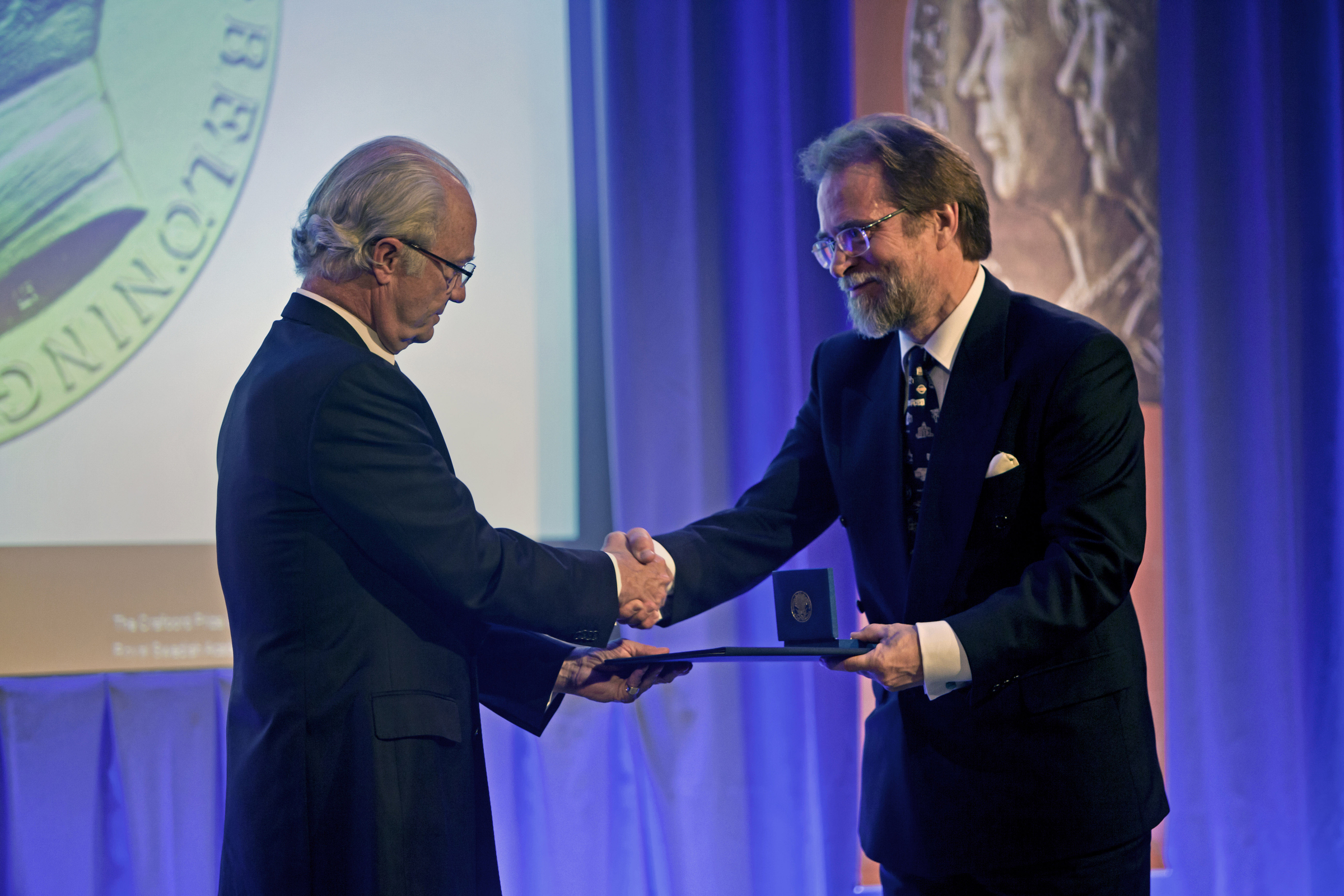The Royal Swedish Academy of Sciences has decided to award the Crafoord Prize in Biosciences for 2011 to Ilkka Hanski, University of Helsinki, Finland, “for his pioneering studies on how spatial variation affects the dynamics of animal and plant populations”.
Patches of diversity in increasingly fragmented habitats
This year´s Crafoord Prize Laureate has established himself, in his more than 30-year career, as one of the world´s most eminent ecologists. He receives the prize for developing a range of new analytical methods and mathematical models in ecology. Today, these are widely used to help scientists investigate how animal and plant species are affected when their habitats undergo splitting owing, for example, to urbanisation, deforestation and climate change.
Ilkka Hanski´s studies — on animals ranging from butterflies, dung beetles and water fleas to voles, lemmings and bears — have made metapopulation ecology a substantial research area. It focuses on species that inhabit fragmented habitats, in order to assess the risk of local extinction and discern what may help the species to survive in a landscape subject to growing human influence. Today, Hanski´s metapopulation theories are among the cornerstones of research on biodiversity, and also have a major bearing on practical management of the natural environment and on conservation policy.
Despite Hanski´s numerous expeditions to such exotic places as Borneo, Madagascar and Greenland, his most acclaimed studies have been carried out virtually on his own home ground, the Åland islands in the Baltic Sea. There, his research team has spent more than 20 years conducting extensive surveys of the Glanville Fritillary (Melitaea cinxia), which has been declining in Northern Europe over the past few decades owing to the transformation of the landscape due to modern farming. Today, the species is no longer found on the Finnish mainland, but survives in split metapopulations in the dry meadows of the Åland islands, where Spiked Speedwell (Veronica spicata) and Ribwort Plantain (Plantago lanceolata) are the key host plants for the butterfly larvae.
One of the best-known phenomena in Hanski´s research is extinction debt. This means that species may persist for a while in fragmented, isolated populations despite being doomed to become extinct in time, owing to the great changes in their habitats that have already taken place. The butterflies Hanski himself has long studied have, for example, suffered from inbreeding and deteriorating flying ability when their subpopulations have become too isolated. This has impaired the long-term survival potential of the species and its capacity to cope with environmental changes. Similar patterns have been observed for many other species when human land use has resulted in progressive disintegration of the landscape and splitting of habitats.
Ilkka Hanski, Finnish citizen. Born in 1953 in Lempäälä, Finland. PhD in Zoology from Oxford University (1979). His positions have included Acting Professor of Zoology (Animal Ecology) and Professor of Zoology (Animal Ecology) at the University of Helsinki (in 1988—91 and since 1993 respectively), and Research Professor at the Academy of Finland (National Research Council) since 1996.
Prize amount: SEK 4 million
The Prize award ceremony is to be held at the Royal Swedish Academy of Sciences on 10 May 2011, in the presence of His Majesty the King of Sweden.
Crafoord Days, 9—11 May 2011
Stockholm (at the Academy): Prize Symposium in Biosciences on Monday 9 May and Prize award ceremony on Tuesday 10 May.
Lund (Lund University): Prize Lecture on Wednesday 11 May.

